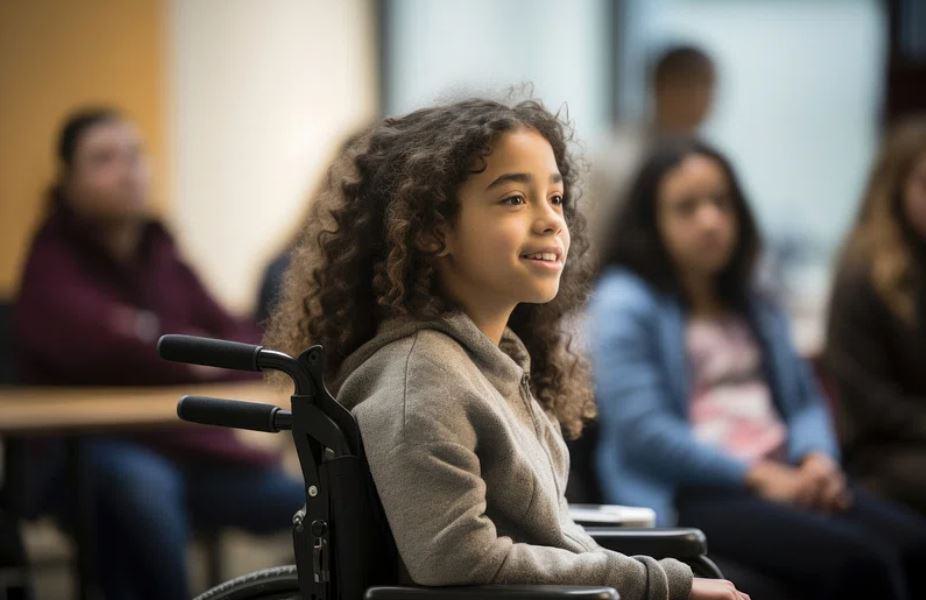Working with children who have multiple handicaps is one of the biggest privileges I have had as a substitute teacher. Showing up to a school one day, I was placed in an “MH” room, a classroom where several children are vision impaired, immobile, and unable to speak or speak well. Others are unable to digest solid food and must be tube fed.
All these kiddos face enormous challenges. Some are very intelligent, but struggle to express that intelligence with words. Some have learning challenges and flourish better in a small classroom setting, with more one-on-one instruction. Despite these challenges, it’s amazing to see them smile, laugh, and interact in different ways, like the little girl who leans toward me for a hug, or the young boy who smiles when I say his name and talk to him, though he can’t see me.
I have subbed long enough in Hoover City Schools to know that the teachers care about these children. They also employ structure, enjoyable learning atmospheres, plenty of break time, and reasonable expectations for students. I know one teacher who has a very diverse learning classroom and runs it like a well-oiled machine, even more so thanks to good teacher’s aides.
But while these teachers are working hard to help these kids learn, loving them and making the days happy for them, the Alabama State Department of Education is unintentionally making things harder.
One might think a 10-year-old, wheelchair-bound, non-verbal, immobile, and vision-impaired student would be exempt from state testing, but that’s not the case. Like other students, he must take the ACAP (Alabama Comprehensive Assessment Program). These special needs students are allowed to use their augmentative devices, enabling them to answer questions if they cannot speak.
But many of the children in multi-handicapped classrooms are not developmentally on track with their age. Some who cannot express themselves are very cognizant of what is going on around them and demonstrate through their devices that they are learning, but others simply cannot use augmentative devices. Their developmental age is much younger than their true age and they are not equipped to be tested on material coinciding with their grade level. Because of this, Alabama and every other state has alternative learning standards and alternative testing.
Yet according to the 2021 Alabama Alternate Achievement Standards, alternative learning standards for children are based on what is grade appropriate and age appropriate, not what is developmentally appropriate.
The Alternate Achievement Standards cover both language arts and math. Here is an example of an alternative standard for a second grader in language arts: “Compose personal or fictional narratives by introducing a character, identifying an event, and providing an ending related to the event sequence.” So, they are asking children who cannot express themselves to compose a narrative.
Most kids with significant challenges are just trying to get through a day without meltdowns. One must be oblivious to the real needs of these children to ask them to perform such academic tasks. It makes me wonder when the members of our state board of education last darkened the doors of these classrooms.
The 2019 Alabama Alternate Achievement Standards for math are also untenable. “Add decimals to tenths using concrete models, drawings, and manipulatives without regrouping,” reads one alternative standard for a fifth-grade student. It is inconceivable to think the sweet girl I sat with last week at an elementary school could possibly understand what is meant by the above standard. I have periodically worked with her since third grade, and she is a wonderful, beautiful child who is learning. She has ways of telling us when she is hungry, thirsty, uncomfortable, tired, and is growing much more capable of using her augmentative device to communicate. But asking her to work with decimals is like asking me to be six feet tall. It’s just unreasonable.
After assisting in these classrooms and watching teachers meet these children where they are developmentally, I think it’s time for the state of Alabama to do the same. Surely it’s possible for the Alabama State Department of Education to revise some of these standards in ways that actually help these students.
Holding children with significant disabilities to these grade level standards makes it seem that the progress they do make is negated. Growth is slower for them, but as I have had the privilege to see, it’s quite possible. Revising the standards by basing them on developmental age rather than grade level age would be a great start. It would allow teachers to help kids hone the skills they have so that some can have a future with a certain level of independence. And the tests administered to them would not demonstrate failure, but progress.
Working with these special children has changed my heart and life for the better. They are some of the best among us. The least our state can do is test them in ways that focus on their potential, rather than keep standards that highlight their failures.
Kristin Landers is a substitute teacher and freelance writer. Landers’ previous work includes serving as Communications Director for the Alabama Policy Institute and working for Citizens Against a Legalized Lottery (CALL) to defeat legalized gambling in the state of Alabama.
The views and opinions expressed here are those of the author and do not necessarily reflect the policy or position of 1819 News. To comment, please send an email with your name and contact information to Commentary@1819News.com.
Don't miss out! Subscribe to our newsletter and get our top stories every weekday morning.










